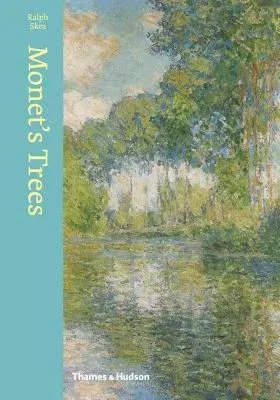"I perhaps owe it to flowers," wrote Claude Monet (1840-1926), "that I
became a painter." His fascination with trees, while perhaps of equal
intensity, is less well-documented. One of the leading figures of the
Impressionist movement and perhaps the most celebrated landscape painter
of his age, Monet dedicated his life to capturing the subtleties of the
natural world. Trees--willows enveloped in the eerie mists of the Seine,
palm trees beneath the bright Mediterranean sun, poplars heavily laden
with snow--became a significant motif in his work, and he used them to
experiment with an extraordinary variety of tones and colors. Ralph Skea
explores Monet's depictions of trees across more than seventy works,
including finished oil paintings and more fleeting sketches in oil,
pastel, and pencil.
The book is divided into five main chapters, each focusing on a
different theme: Monet's earliest drawings and paintings of trees; his
atmospheric use of rivers and coastlines from England to Italy; the
fields, farmlands, and orchards of France; parks and gardens in both the
city and the countryside; and his muted depictions of trees in winter.
Skea's introduction draws together these threads, putting them in the
context of Monet's ouvre as a whole and tracing his artistic
development.

